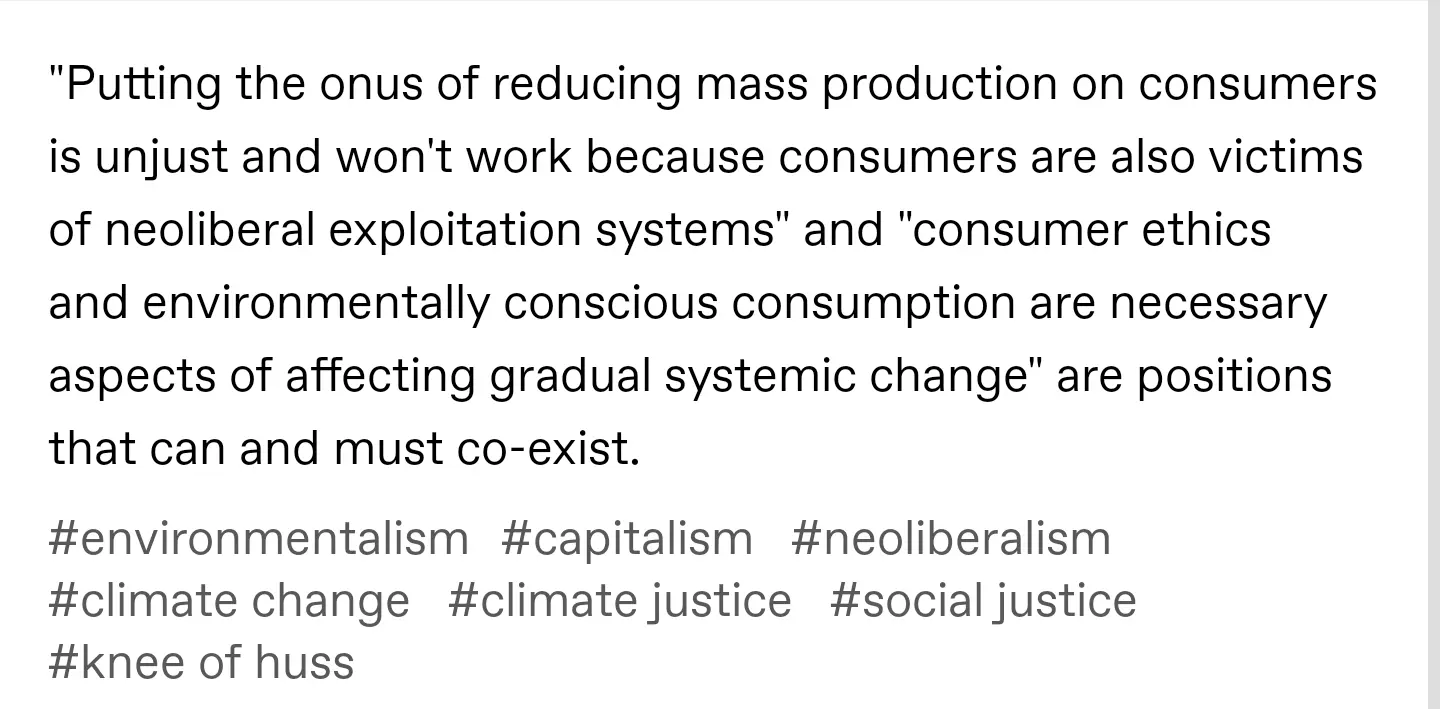this post was submitted on 26 Sep 2023
252 points (93.8% liked)
Solarpunk
5604 readers
52 users here now
The space to discuss Solarpunk itself and Solarpunk related stuff that doesn't fit elsewhere.
Join our chat: Movim or XMPP client.
founded 2 years ago
MODERATORS
you are viewing a single comment's thread
view the rest of the comments
view the rest of the comments

--Bill McKibben: The Question I Get Asked the Most
I've personally witnessed the tension between people who equate individual environmental impact with morality and those who are trying to organize social movements. I wish they were complementary, but often that is not the case. The condescension from people who can afford environmentally-conscious products or have hours to spare for less time-efficient forms of travel and cooking is destructive to movements, especially when organizing in low-income and immigrant communities. Ecological individualism is great if it is done in ways that complement or support mass action, otherwise it is merely performative.
Unless you're a millionaire, I don't care how you're spending your money, as long as you're there when we need you.